The announcement of the removal of subsidy on Premium Motor Spirit (PMS) also generally referred to as Fuel Subsidy, has sparked a chain reaction across sectors of the Nigerian and African economy, starting with increase in fuel price from around N180 to between N498 to above N600 per litre. Other spillover includes in areas such as food prices, transportation fares, health, education, rents and or housing, among several areas.
Consequently, both Nigerians and neighbouring countries are lamenting hardship.
But Mr Kingsley Eze, the Co-Founder/CEO NAIRAXI, has urged Nigeria to tap into alternative sources of energy to salvage the situation. In this extensive interview with Anthony Ogbonna, he also explained how tech can intervene in this situation.
Mr Eze also explained how his mobility platform, NAIRAXI, is digitalizing the transport sector in Nigeria.
Enjoy the read…
Q : What is your take on the removal of fuel subsidy?
“We have to understand that it has to go. Now, when we ascertain that fact, first, we know that the daily consumption rate or statistics from NNPC and the Nigerian Bureau of statistics pegged it around 90+ million liters every day.
Do the math. Imagine when government is spending over N300 naira daily to subsidize, multiply by 90+ million liters. It gives you a mind-boggling figure.
“The question remains: Why and who are the beneficiaries of the fuel subsidy? Yes, cheap petrol drives the economy.
Yes, cheap petrol affects the cost of regular consumer goods in the market. Yes, cheap petrol helps us to move from point A to point B.
ALSO READ: Practical Ways To Reduce Fuel Consumption After Subsidy Removal
But, we just know that a tradeoff which is the country lacking so much money for basic infrastructure and investment I healthcare, schools and the rest of it.
“So, it’s not a good trade; this is me saying that Subsidy, yes, it has to go! That’s number one”
Q. : Speaking of approach of fuel subsidy removal:
“The next thing we need to also talk about is he approach.
I feel that’s the area that most Nigerians have issues with the current government.
How they chose to go about it and measures that should be put in place before removing the fuel subsidy.
Q : What impact do you think the fuel subsidy removal will have on the transport sector?
“Obviously, everybody is already feeling it, which is a sharp spike in price.
If energy cost goes high, its imperative for regular drivers or transport companies to also increase their fares to match up with that change in the cost of energy.
“You know, its still the same number of seats on a bus; the bus did not increase the number of sitting capacity.
For example, you have a 30-seater bus and to fuel your car, you were spending N10,000 before [subsidy removal] but now [with fuel subsidy removed], you have over 250% increase, which means, its costing you almost times three.
So, you are spending almost close to N25,000 to N30,000 to fuel your car. So, to make up for that cost, you might have to hike your price.
Some people have already hiked their prices at 100%, some 200%. The likes of rideshare partners like Bolt and Uber.
They are even asking for a 200% increase in price, not just 100%. So, the cost of transportation obviously goes up; the cost of logistics which is also like transportation but in this case, movement of goods also goes up.
And that translates to higher prices for basic goods in the market and also inflation. This is because, more money is now chasing the same amount of goods in the market.
Q : You introduced NAIRAXI as a solution in the transport sector in Nigeria. Can you explain how exactly NAIRAXI does this?
“We are more like a mobility platform. Mobility as a service, if you look at our approach, we divided different sections of the company to attend to different sectors that affect the average Nigerian when they are moving.
For example, in public transportation, we partner with operators, for example, state government transport operators like what we are doing with Kano state and their official transport network, Kano Metropolitan Transport Company (KAMETCO).
So, we equip these operators with digital tools that will make their operations seamless and male it sustainable and profitable.
“So, ease of operation, digitization, helping them with sustainable solutions and making sure that they can be profitable.
Q : Why float NAIRAXI?
“We have seen how most government organizations like state and even federal governments that have tried it before.
They approached transportation with the notion of ‘let’s just buy buses and let the buses just start running and at the end, you and I have seen a lot of programmes like SURE-P, I think they bought close to a thousand vehicles and gave them out and within just one year, most of the cars broke down; drivers couldn’t pay back and that’s how these kind of programmes dies a natural death.
“In Abuja, we’ve seen Abuja Urban Mass Transit. They had over 300 brand new buses and most of their buses are nowhere.
They are like, broken down. So, these are like case studies that we have seen in the market and we asked ourselves a question: ‘How can NAIRAXI offer solutions that can drastically reduce the occurrence of [loses] of these agencies?
You know, when the government fails, it tends demoralize the government in seeking investments in those kinds of sectors.
“For example, if you are a state governor and you bought 30 to 40 state of the art buses, let’s say N2bn naira, a hundred buses should be more than N5 billion at current market price.
If bought at N60 million naira and you bought a hundred and over the course of four years, part of the fleets are not operational, there is no point for you to even try to resuscitate those kind of programmes.
So, at NAIRAXI, we came up with that solution in the areas of making sure we don’t have fare leakages which is revenue collections for these transport companies.
That’s where our transit card project and that’s what we have with KAMETCO.
So, we issue out a smart card like your debit card. So, fare collection is key to making sure that the public transport system works.
“So, when you’ve collected the fares, another thing is to improve quality assurance, making sure that the fare you collect is commensurate with the numbers of passengers that you carry.
We are in a society where people cut corners and your drivers would want to cheat you or cheat the company.
So, we also have the passenger counting on the system that we help most of these companies install in their vehicles AI [Artificial Intelligence] motion detection and the rest of them.
And, our GPS and our Cloud infrastructure. So, when people get in or get down, we ascertain remotely, both online and offline, getting to know how the things work. “
“Its also for monitoring. Apart from passenger counting, it is also important to keep an eye on what is happening in the bus.
We’ve seen the cases where one of the Lagos state BRT bus drivers purportedly kidnapped a passenger for ritual purposes.
So, for something like that, we really need to have a system where you can remotely play back video clips and also keep an eye on everything that happens within that operation.
For example, within a system, the Cloud video monitoring is also a solution.
Obviously, it should be explored by current transit agencies and governments that really want to take it up.
Third aspect:
You need like a driver management system, a proper routing system.
Why people don’t use public transport system is that, you don’t even know where the bus is.
So, what’s the schedule? Scheduling and passenger information system is also key.
Routing and making sure you check where the bus is at that moment. If its 10 minutes away, where can you catch it, and so on.
We also help organisations with that. ”
“We also help with their driver management.
Drivers can sign in and we can check their alcohol level.
We just empower them to do their jobs effectively.
You can also monitor and track them.
This particular solution goes for fleet operators and agencies and even regular bus companies that are in transport business.
“Another one is our mobile application we use to connect. It does the regular things like Bolt and Uber.
The NAIRAXI Mobile App It can go for motorcycles, tricycles or normal on-demand taxis and some of our branded taxis.
So, anybody can download the app. We target the average Nigerian to have it on their phone while we explore getting more drivers on that network and getting the likes of Bolt and Uber to join.
But right now, we are still focusing on our core partnership with state governments and agencies.
Q : On Which States NAIRAXI is currently partnering with?
He said while the tech service company is currently in partnership with the Kano state Government to automate and digitalise the state’s transport sector, the firm is also having partnerships being worked out with the FCT and the Federal Government to come up with a solution that will affect all states in Nigeria.
He said “For now, Kano state is where we have partnership.
But we also have something being worked out for Abuja urban mass transit to revamp their dying fleet.
We also have something in the works with the Federal Government; something that can affect most states.
Q : Does NAIRAXI have a reporting system that alerts security agencies if it detects danger with a driver or any transport system?
“Well, we are like a bridge between the operator and the government. So, the operator is the one we are interfacing with.
We are a tech company and want to remain so. Operationally, when we get an SOS alert, we push out alert to the official channel which is the National Emergency Response Department.
Most times, our system alerts the operator on what to do and we offer advise so the operator can take it up from there.
So, for instance, in Lagos, we have LASTMA as the official company that interfaces with the government. In Kano, its KAMETCO and they take up anything that our system gives to them.
Q: How Is NAIRAXI tackling challenges and funding?
According to Kingley, the goal of NAIRAXI is to grow small and steady.
He said the company intends to remain a Nigerian-based organization in all aspect hence, the company has not explored any international funding.
“Funding is always a big problem. That’s capitalism for you.
But we try to grow small, slow and steady and not trying to be fancy or make noise.
Our approach has been to spend every one naira in areas that would take the company forward. So, starting small is key.
In our own case, we have not really explored international funding because we want to keep the company all Nigerian and maintain a level of organic growth because, I believe that if your company is growing, you won’t need funds from anybody.”
“We all as the founding team, we try to grow the company organically and hope that the business will take care of itself in the long run.
So, innovative product and with the subsidy removal, we hope that from Kano, we can land more states and more people will begin to take the public transport ride very seriously.
So, our joy would be to land the next state and the next state and that’s better than raising millions of dollars.
Raising funds won’t really serve our needs but when we land contracts with the next state, that will help us make money. “
Q, : In what areas should government reinvest the removed subsidy funds?
“Obviously, transportation should be the key area.
I am saying this not because we are in the transport business but I know that transport drives almost everything.
Oil is one of the hottest products in the world because oil drives transportation.
So, it just shows you that transport is key and transportation should be a social good like good roads and good hospitals.
It is something that people are meant to enjoy.
A robust transport network; inter modal, in the sense that there is something for everybody – buses, mini taxis, trains, ferries and the rest of it, depending on your geography and what works.
Q : Should Nigeria launch fully into Electric Vehicles (EV) as alterative?
For Kingley, Nigeria is not ripe for electric mobility.
He said, on paper, it is a great option but in terms of factors such as practicality, cost and infrastructure, Nigeria is still very far from being well prepared to transition into electric mobility.
“For now, Nigeria is not ripe for electric mobility in terms of both cost effectiveness and practicality.
Cost of electric vehicle is almost three times the cost of regular conventional internal combustion engine vehicles.
So, for the cost aspect, practicality, charging stations, charging infrastructure, and access to electricity [Nigeria is not ripe for EV].
On paper, it is a great option but practicality and cost, Nigeria is not there.
He said, however, that “the next alternative that we might have to explore are the alternative fuel like CNG and LPG.
Supply of LPG is fairly availability and you have stations like NNPC are going into it and a lot of other gas stations are coming up.
But the area of Diesel for public transit, Diesel remains the most cost-effective fuel for public transportation.
Nigeria should explore the Diesel, use the next two years to build our gas infrastructure and then in the next ten years, we should be thinking of gas.
While electric mobility should come from, like 12 to 15 years from now.
That’s the practical thing we should be able to see in our environment considering our scarce resources and our own situation.
When you are a short man, you shouldn’t think of playing at the MBA.
So, you know your limitations and you accept it,” he concluded.
About Nairaxi
Nairaxi is an indigenous Nigerian on-demand multi-service platform and digital payment technology group based Abuja.
Nairaxi launched its mobile application in 2021 with three key service options:
Mobility-as-a-Service(Book different ride options), ecommerce-as-a-Service(Shop from a Marketplace) and Logistics-as- a-Service(Send items and documents) seamlessly via a mobile app.
The super app that provides a variety of smart ways to eliminate the hassles of everyday life in Africa.
Found this interesting? Share!

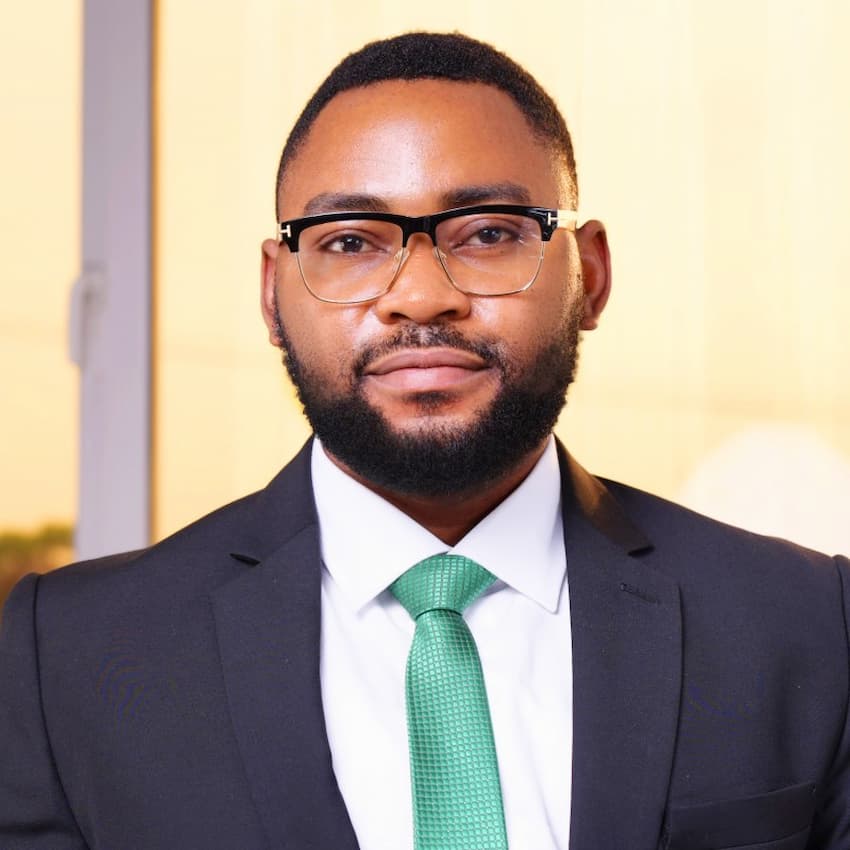

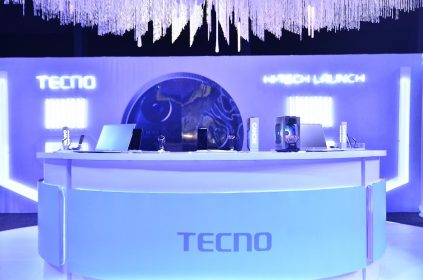
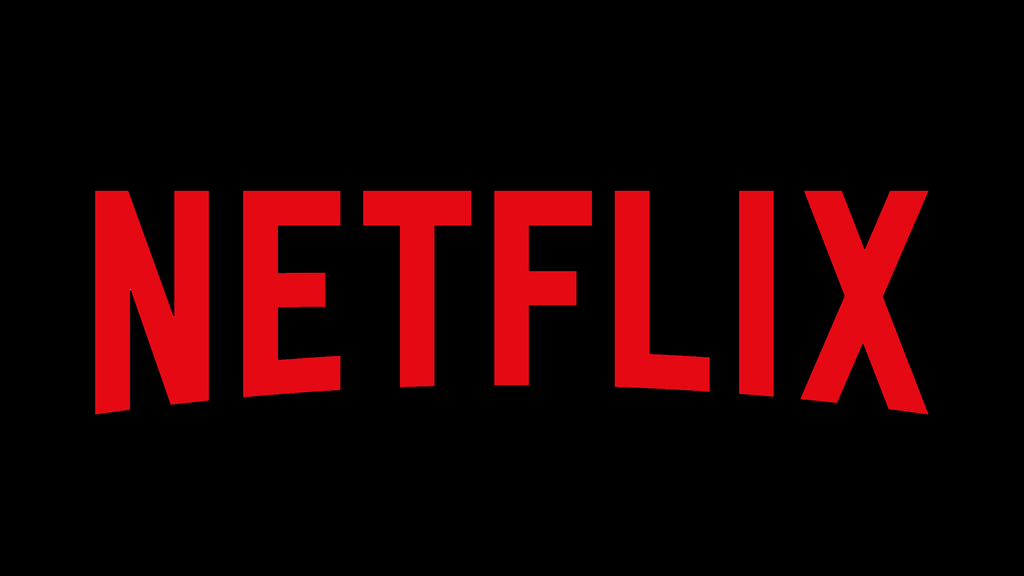
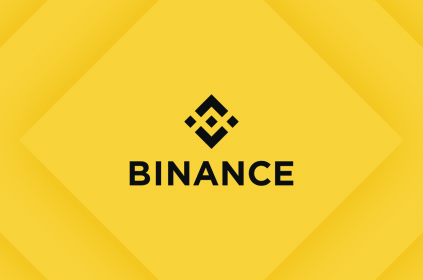
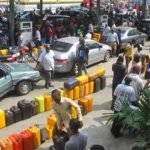





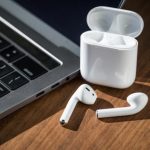
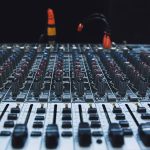









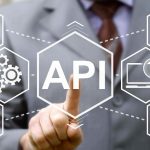


 and then
and then